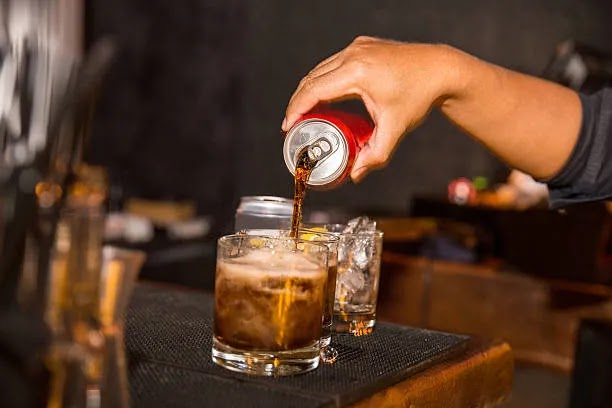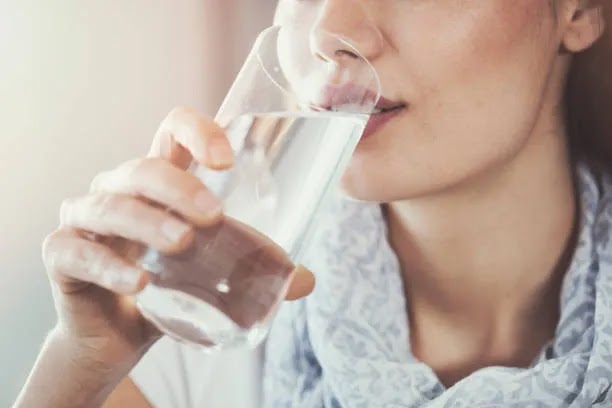It's time to give up these habits if you want to stay healthy.
With cold and flu season rapidly approaching, you may be eager to boost your immune system's defences to avoid being knocked down by viruses and other bacteria. While taking supplements, eating nutritious foods, and avoiding people who may be sick are all intelligent places to start, there's one surprising way you could be weakening your immune system without you realizing it: through your drinks.
Read on to learn which drinking habits qualified dietitians suggest you avoid if you want to safeguard your immune system and stay healthy.
Drinking Soda
You already know that soda is bad for your waistline, but doctors believe it's also bad for your immune system.
Stacy Roberts-Davis, RD, LDN, creator and CEO of Flavorful Nutrition LLC, says soda is bad for the immune system. "Soda contains sugar or artificial sweeteners, both of which have been shown to weaken the immune system. This makes fighting infections more difficult."
Inadequate Water Consumption
If you don't drink enough water throughout the day, you may experience more than thirst: your immune system may suffer as well.
"Water is a vital element of our body's natural cleansing processes and carries immune system-supporting nutrients like vitamin C throughout the body," explains Catherine Johnston MS, RD, LD, registered dietitian and owner of Catherine Johnston Nutrition, LLC. While that's enough for one person may not be enough for another—for example, if you're exercising vigorously daily —64 ounces of water per day is a decent place to start, and you can increase your consumption based on your specific needs.
Excessive Caffeine Intake
It's all too easy for a cup of coffee in the morning to turn into an entire pot, especially if you're tired. Unfortunately, if you consume too much caffeine, your immune system may suffer as a result.
"Drinking too much caffeine (more than 400 mg per day) or drinking coffee too late in the day might disrupt your sleep, which can have serious consequences for your immune system," Johnston says. That does not, however, imply that you must forego your coffee fix entirely.
"Many caffeine-containing beverages, including coffee and tea, have anti-inflammatory properties that may help your immune system, so restrict yourself to a few servings early in the day," Johnston advises.
Excessive Alcohol Consumption
"Even after a single binge-drinking session, your body prioritizes breaking down alcohol quickly, which can hamper immunological response," adds Johnston.
These effects may become more prominent over time. "Long-term alcohol consumption impairs the function of an immune system supporting cells, increasing your risk of becoming ill," says Johnston.
Consumption of Heavily Processed Beverages
If the beverage you just bought contains substances, you can't pronounce, drinking it could have long-term harmful consequences for your immune system.
"Although there is a strong link between our gut bacteria and our immune system, numerous dietary additives, such as emulsifiers, thickeners, and artificial sweeteners, have been discovered to be potentially damaging to our gut bacteria. More research is needed to make specific suggestions but look at the labels of your favourite drinks to see if there is an additive-free option "Johnston agrees.
Consumption of Excessively Sweetened Fruit Juice
While fruit juice is frequently promoted as a healthy beverage, it may be anything but when it comes to your immune system's health, especially if you consume it in large quantities.
"Juice with added sugars isn't much better than drinking sugary sodas," says Alicia Galvin, RD, a Sovereign Laboratories resident nutritionist. Some cranberry juice cocktail juices, for example, are sweetened with high fructose corn syrup and other added sweeteners, resulting in up to 50 grams of added sugar—nearly as much as a can and a half of Coca-Cola. While some juices, such as orange juice, have high quantities of immune-boosting vitamin C, other drinks—along with macronutrients like fiber—can be deficient in these micronutrients. "Juice also lacks the healthy fibers required to feed your beneficial gut flora, which is essential for immune health."







